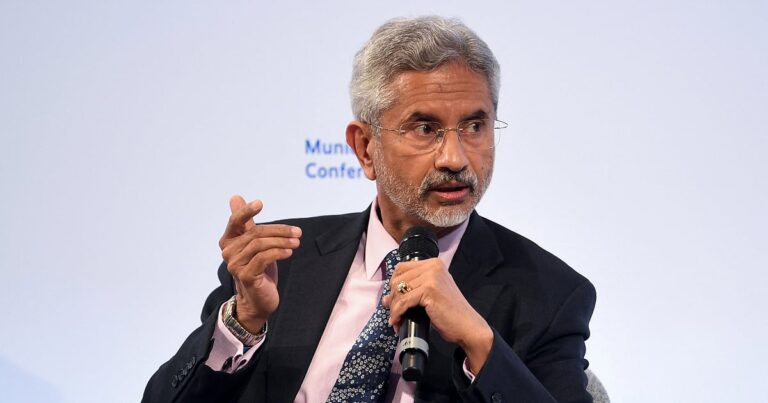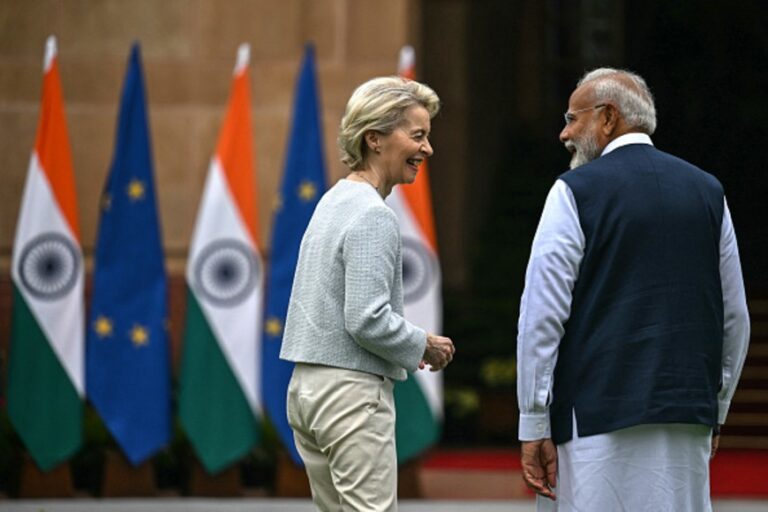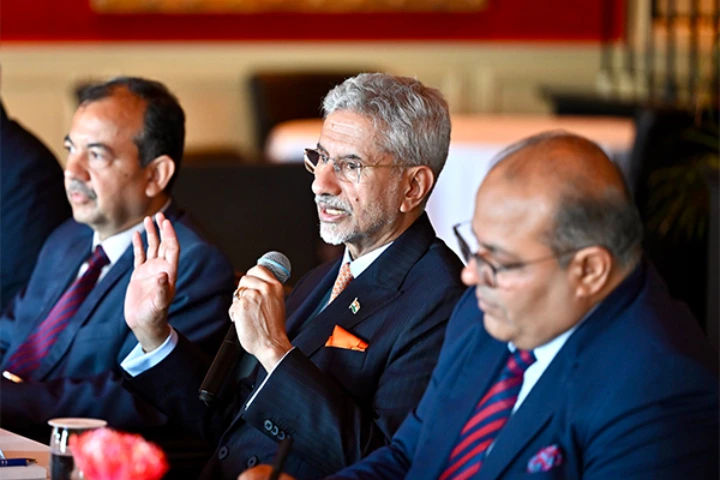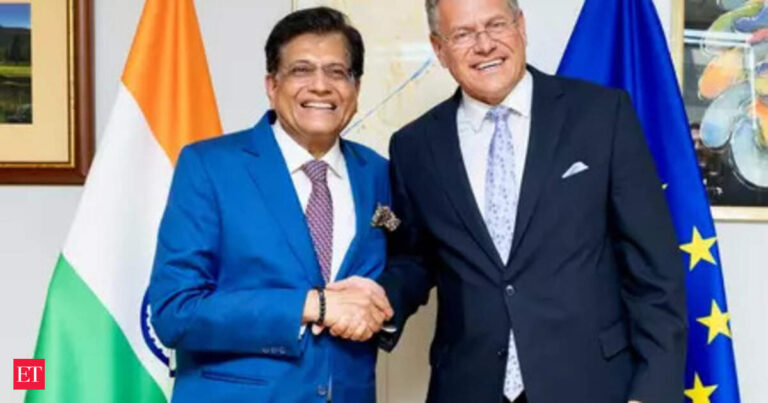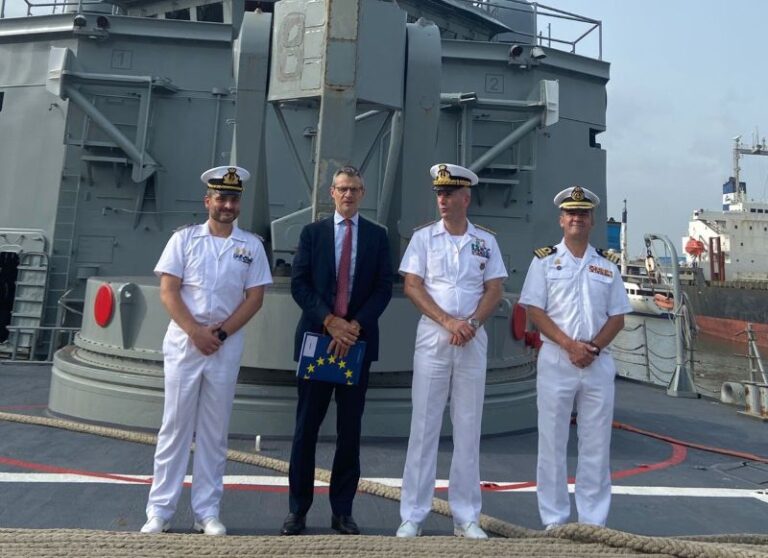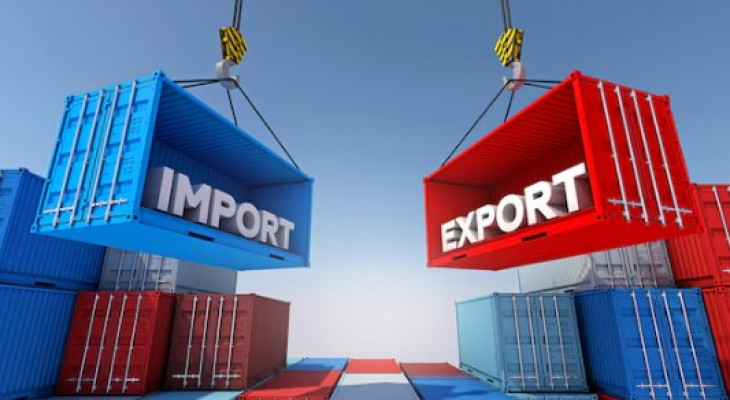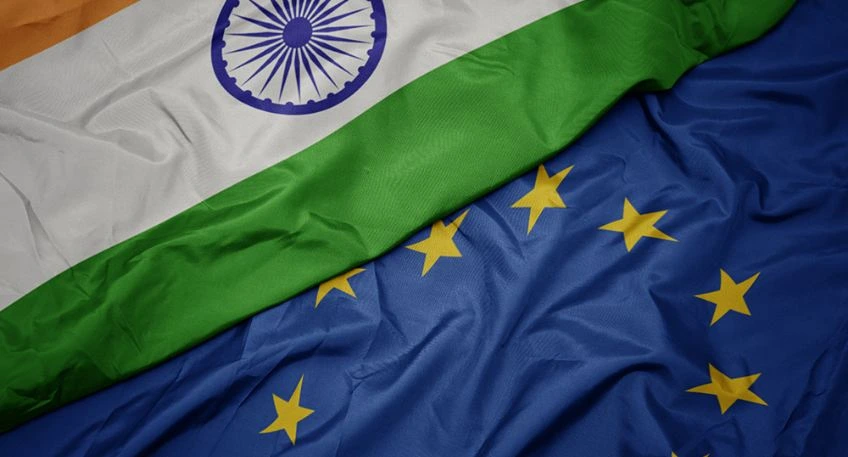
By annant Rangan
With the withdrawal of multilateralism from the United States, India’s strategic positioning will determine whether it emerges as a commercial power plant or a vulnerable player in the evolving global economy.
Indian goods trade with the European Union (EU) increased to $ 137.41 billion during the year 2023-24, with $ 75.92 billion in exports and $ 61.48 billion in imports, generating a substantial trade surplus for India. While negotiations are advancing towards a free trade agreement (ALE) aimed at 2025, India must work with caution, balancing ambition and prudence. A sectoral strategy, rather than a global agreement, would be preferable to protect the critical economic interests of India.
The president of the European Commission, Ursula von der Leyen, alluded to the surprises in the talks of the ALE, but India must ensure that none of these unexpected provisions compromises its strategic sectors. Large liberalization could expose the national industries of India to unfair competition, in particular in manufacturing and agriculture. A more intelligent approach would focus on targeted collaborations, especially in electric vehicle batteries (EV), where India and the EU are to be won. India should also put pressure for greater mobility for qualified professionals, offering Europe access to a highly qualified workforce at a time when US immigration policies remain restrictive.
However, some sectors are faced with significant risks within the framework of the proposed ALE. The Indian automotive industry, a national manufacturing pillar, could undergo strong pressure if EU demand for higher access to the market leads to unfavorable conditions for Indian, Japanese and Korean players. In addition, the EU carbon tax framework, which acts as a disguised rate, threatens to erode the competitiveness of India exports. Without effective negotiation guarantees, India could find itself locked in an agreement that promotes Europe in a disproportionate manner.
Agriculture poses yet another challenge. The highly subsidized agricultural sector of the EU benefits from the artificial advantages that lack Indian farmers, making a large agricultural liberalization dangerous. Dutch precision agriculture techniques and dairy products and horticulture supported by subsidies would easily exceed fragmented and small -scale farms from India. A selective approach – perhaps allowing European niche products such as wine and spirits access Indian markets – would protect the national agricultural sectors while satisfying certain European requests.
Geopolitics also occupies important plants on AFT talks. India could take advantage of its growing strategic partnership with the United States to moderate pricing concessions to the EU, ensuring that new commitments to Europe do not weaken its links with Washington. Given the complex institutional processes of the EU, New Delhi can find more effective to forge bilateral understanding with member states such as France and Germany, which together represent 40% of EU GDP.
The recent visit of Von der Leyen to New Delhi, accompanied by a high -level delegation, underlines the renewal of the interest of Europe to deepen links with India. This interest revived, however, is not only economical – it reflects the anxieties of Europe on the world order, in particular with the potential return of Donald Trump to the White House. Ten -tinted transatlantic relations have made Brussels allowed the diversification of partnerships, India emerging as a crucial actor.
Technological cooperation is about to be the cornerstone of the India-UE partnership, with areas of intervention, including artificial intelligence (AI), clean energy and digital infrastructure. The next meeting of the EU Commerce and Technology Council in India offers a chance of acid collaboration, even if ALE negotiations remain complex. Both parties understand that economic and technological cooperation is essential for their strategic ambitions.
Defense and security cooperation also increases on the agenda. India’s possible participation in Pesco, the EU defense collaboration mechanism, would be an important strategic step, similar to the recent EU defense links with Japan and South Korea. This would extend the India-EU relationship, firmly integrating it into global security architecture.
However, several potential flash points could derail the wider partnership. The neutral position of India on the Ukrainian conflict comes up against the pro-Ukraine position of the EU, and the cautious approach of India in matters of China can diverge from European political leaderships. Meanwhile, India remains suspicious of the strict environmental and EU work regulations, in particular the carbon borders adjustment mechanism. Von der Leyen’s regulatory simplifications could help fill these differences, but it depends a lot on their effective implementation.
Despite these complexities, the two parties remain determined to strengthen relationships. A joint strategic program is expected in the middle of the year, followed by a new roadmap at the next EU-Indian summit. The new high representative of the EU, Kaja Kallas, noted the immense unexploited potential of Indian -EU relations – a recognition taken partly by the evolutionary strategic calculation of Europe in response to external pressures.
Parallylly, India took over the Ale talks with the United Kingdom, after an eight-month break, adding another dimension to its commercial strategy. The 15th round of India-UK negotiations is involved in an era of economic uncertainty, as American trade policies are becoming more and more protectionist. The two countries are impatient to accelerate the agreement, recognizing its mutual economic advantages.
The discussions were already suspended in May 2024, due to the general elections in the two nations. Now, with the threat of an American price of 25% on steel imports, the United Kingdom has increased the interest of securing alternative markets. For India, the United Kingdom remains a key market for cars, pharmaceutical products and processed foods.
The New Delhi’s diversification of exchanges is obvious in its simultaneous discussions of the ALE with the EU and the United Kingdom. With Europe and Great Britain wishing to strengthen links with emerging economies, the expansion consumer base of India and increasing economic influence make it an essential partner.
Von der Leyen’s reference to “the intensification of geostrategic competition” highlights the tectonic changes in world trade. While it avoids directly mentioning the United States, Trump’s protectionist position has turned long-standing commercial standards, forcing nations to adapt quickly. However, this protectionist wave is not only American – all governments, including India, recalibrate trade policies to protect national industries.
However, protectionism is a double -edged sword. Trade barriers often trigger reprisal measures, distorting global supply chains and undergoing industrial competitiveness. While Trump policies seek to protect American industry, they are also likely to isolate the United States and reduce its global economic influence.
The EU, on the other hand, has signed trade agreements with South America, Mexico, Switzerland, and even re -engages Malaysia after a difference of 13 years, stressing its commitment to open trade. The widening of the BRIC BRICS, now with Indonesia as a 10th member, moves economic power to the world more.
At the same time, the deepening of India’s trade links with ASEAN and the membership of the United Kingdom to the transpacific partnership company indicate a rapidly evolving sales card.
In this interconnected world, commercial cooperation has historically motivated prosperity and security. The rise in protectionism is likely to disentangle these gains, injecting new volatility into world trade. For India, the strategically extension of economic ties with the United Kingdom, the EU and other partners sharing the same ideas will not only strengthen economic resilience, but will also contribute to a fairer and more inclusive global trade system.
– The writer is a research manager at the Chennai Center for China Studies. His research interests constitute human relations and human rights of China-Wana (Asia-West and North Africa)
